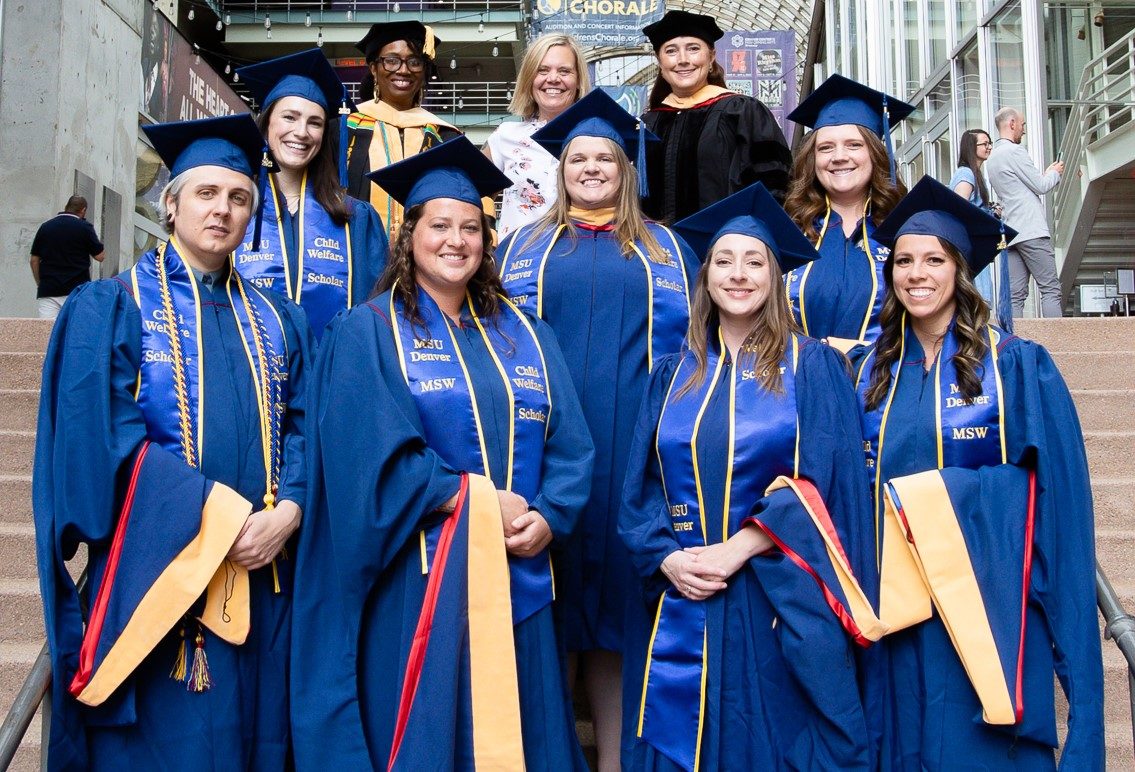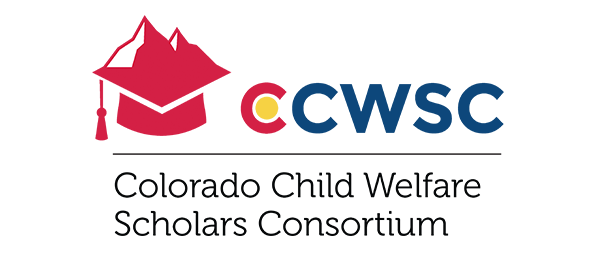
2023 Alumni Study
This year the CCWSC funded an in-depth study of the program’s alumni, specifically considering their career pathways in child welfare, facilitators & barriers to career paths, and alumni experiences in Colorado agencies. Led by the Butler Institute for Families (University of Denver), the 2023 research builds on the ten year program study completed in 2018; all alumni from 1997 to 2022 were invited to participate through anonymous survey links and/or focus groups. In total the survey includes 190 survey responses and 20 focus groups participants.
Read the full report here or find a shortened executive summary here.
Some key findings include:
- 41% of survey respondents reported they were currently working at a Colorado child welfare agency (county, state, or other)
- CCWSC alumni stay longer in child welfare work after receiving their stipend/scholarship: respondents reported working in Colorado child welfare for an average of 4.8 years after graduating
- Survey respondents reported a strong sense of their fit and self-efficacy with child welfare work, especially regarding their commitment to the well-being of children and families, that they are motivated to find solutions when challenged in a case, and that their backgrounds make them a good fit
- Themes around what brought alumni into child welfare work indicated that most alumni felt a connection through their lived experience, values, and passion/compassion for this work
Ten Year Program Study
In 2018, the Colorado Child Welfare Stipend Program conducted a ten-year cohort study of stipend program graduates from 2006-2016. The purpose of this initial study was to better understand the following research questions:
- How do Colorado graduates of the stipend program experience organizational commitment?
- How does receiving a Title IV-E stipend affect their identity as a child welfare professional?
- How does being a Title IV-E graduate affect intent to stay in the field?
In total, 202 graduates were invited to participate in a mixed methods evaluation that included an online survey and follow-up focus groups for those still working in a county child welfare agency. The survey measured individual factors (self-efficacy, job satisfaction, intent to stay, secondary trauma, burnout, coping skills, time pressure, social work education satisfaction, and exposure to violence) unit-level factors (peer support), organizational factors (organizational climate and professional development) and community-level factors (public perception of child welfare). Focus groups facilitated discussion around identity, career paths, and experience of organizational commitment.
Download the 1-page infographic about the study: Stipend Program 10 Year Study Infographic (PDF).

